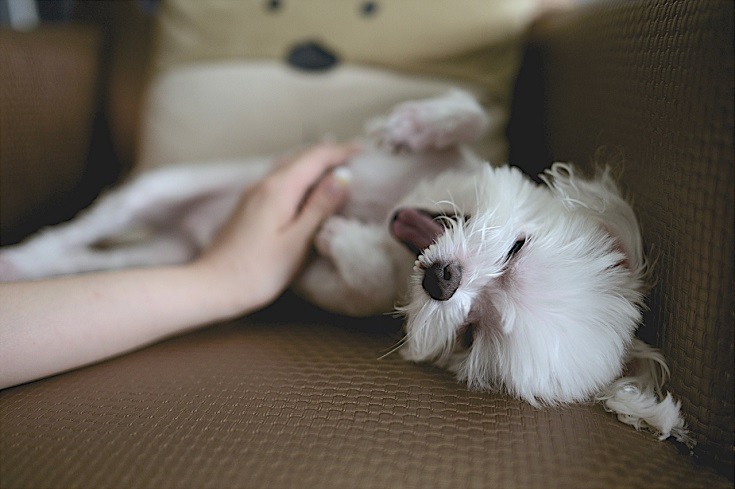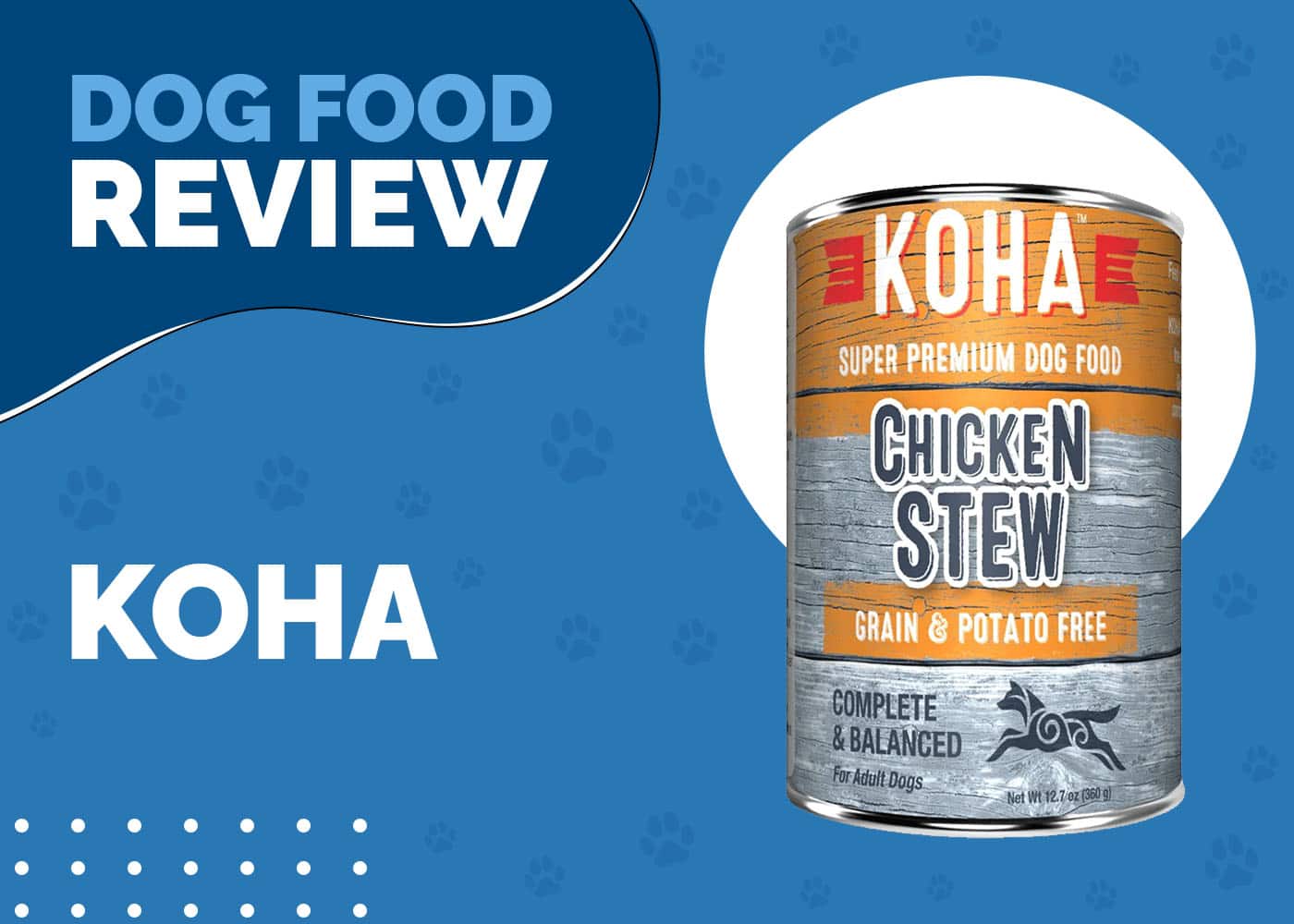Why Do Dogs Like Peanut Butter? Nutrition Facts & Considerations
By Ashley Bates
Updated on
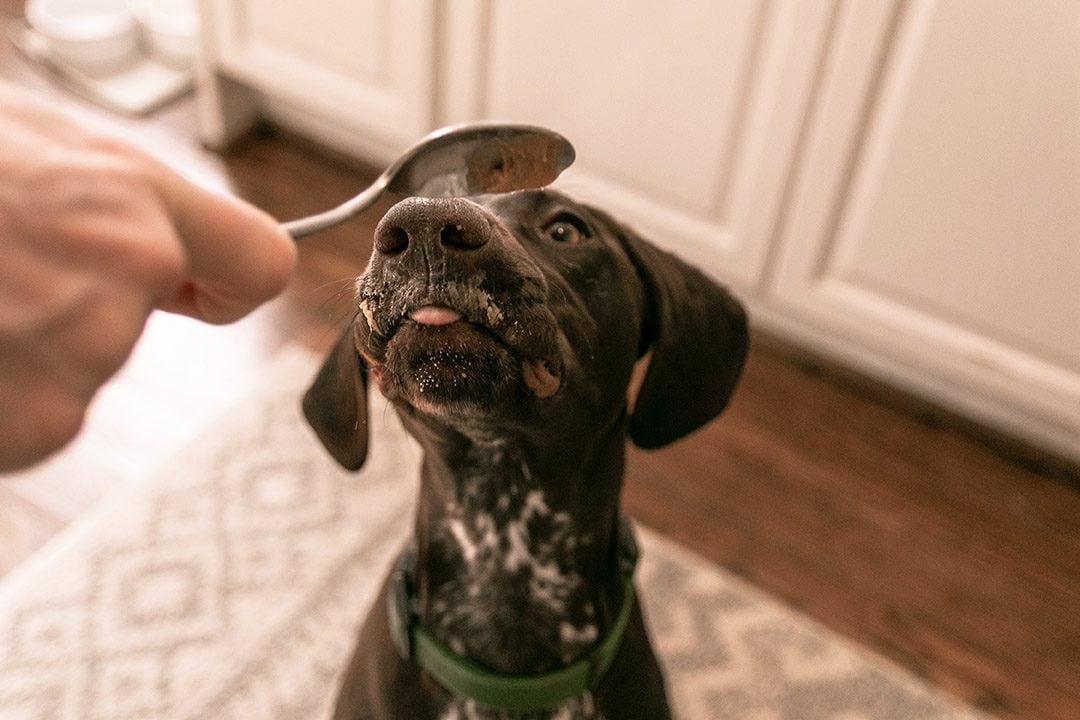
Click to Skip Ahead
Our dogs would scoop several dishes out of our hands with no provocation. One of their top favorites across the board is peanut butter. Like us, dogs are omnivorous. However, nuts don’t seem to be something that would be on the traditional menu.
So, why do dogs like peanut butter so much? What is it about this sweet and salty delicacy that strikes their fancy? Dogs are drawn to sweet treats, plus they can smell the nutty goodness and nutrients it contains. In this article, we will explore further why your dog might prefer peanut butter and how you can ensure you’re portioning their snacking correctly.
Peanut Butter: The Tantalizing Treat
What exactly does this nutty butter do for our dogs? Our dogs have an impressive sense of smell. By instinct, they can smell that peanut butter is packed full of nutrients their body requires. So, based on that alone, they are naturally drawn to this food item.
Plus, if the peanut butter has added sugar, most dogs are very attracted to sweet treats. Remember that added sugars are not good for dogs, but peanut butter can be very safe in small amounts.
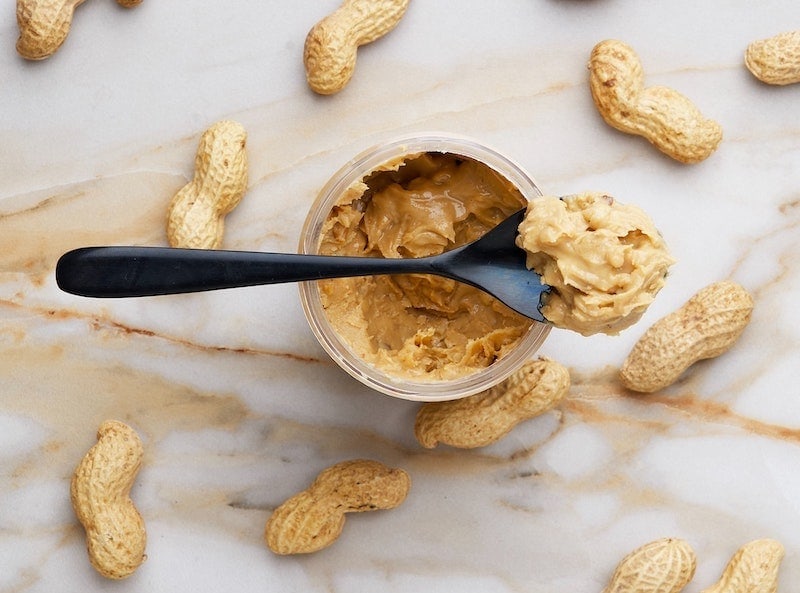
Ask Your Vet!
Before we delve into anything more about peanut butter and dogs, we want to let you know that your vet is your best reference point for canine information.
If you plan to add peanut butter into your dog’s diet, it is a very good idea to contact your vet so they can give you guidance on whether your dog is a good candidate for peanut butter and how much you should be feeding them.
Keep in mind that when you introduce anything new to the diet, there is a chance that your dog will have a reaction due to allergies or gastrointestinal distress.
What Kind of Peanut Butter Should Dogs Eat?
When you feed your dog peanut butter of any kind, steer clear of the Reese’s cup and give them something healthier instead. You should buy organic when and if you can. Not only is organic peanut butter healthier for your pooch, but it’s also healthier for you, too!

Be Selective When Serving Certain Peanut Butter Items to Dogs
While peanut butter is terrific as a snack choice for your dog, there are several things to consider about the kind you feed them. Some peanut butter is part of a delicious dessert, while others are ground peanuts with minimal additives.
Here are some extras to stay away from.
Chocolate
Many peanut butter snacks have chocolate because, well, what could be a better combination? However, as many dog owners are aware, chocolate is toxic to our canine companions. So, a Snickers might not kill your dog, but it can make them pretty sick.
White chocolate does not have any theobromine because it is not genuine chocolate. All white chocolate is sugar, cream, milk, and vanilla—no cocoa. So, that’s one type of “chocolate” you don’t have to worry about.
However, genuine chocolate is quite another story. The severity of the defect depends on the amount of theobromine in the chocolate. Milk chocolate, for example, has less than dark chocolate.
- Nausea
- Vomiting
- Diarrhea
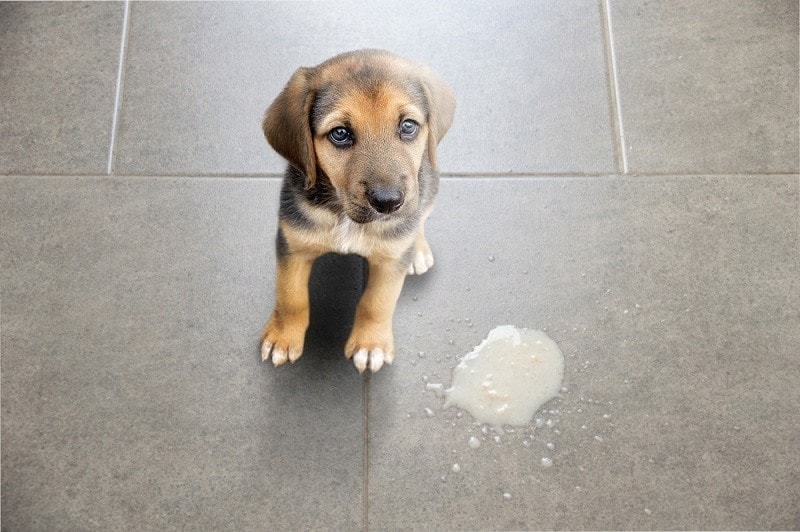
Excess Sugar
Dogs just quite simply shouldn’t have sugar. All of the nutrients your pup needs is already in their dog food. If you supplement with anything, sugary foods should be very last on the list. Sugar can contribute to issues like weight gain and diabetes.
Always check the label to ensure there is no added sugars. Especially stay away from peanut butters containing xylitol, as it is the most dangerous artificial sugar for dogs. Your pup doesn’t need it, we promise!
High Sodium
Dogs only require the amount of sodium they get in their daily diets. It is perfectly designed to give them just the right amount for bodily balance. If you add extra sodium into the mix, it can cause their cells to dehydrate rapidly, so definitely be careful of the sodium content in the peanut butter you select.
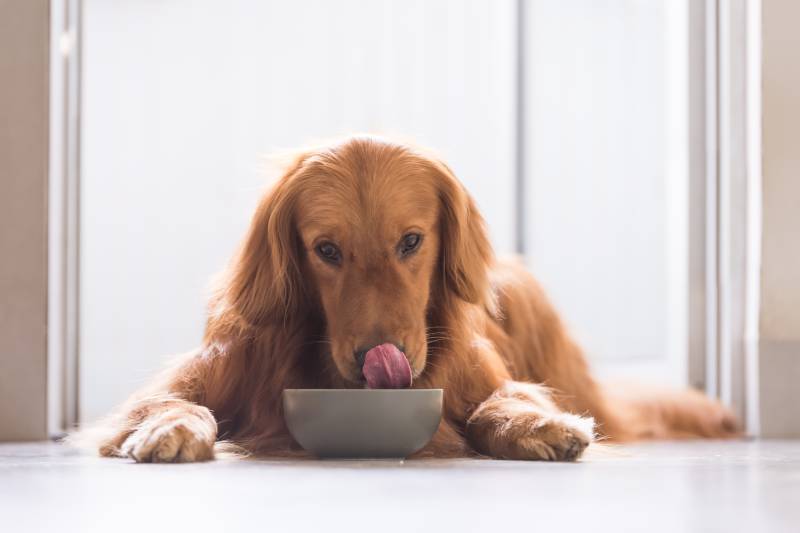
Can Dogs Have Nut Allergies?
While peanut butter is very safe and widely used for canines, take caution. Some canines develop allergies to nuts just like humans can. It can cause signs of an allergic reaction like wheezing, gas, stomach upset, or itchy skin.
The problem with food allergies to items like nuts is that they can be a little difficult to identify initially. That is especially true if the symptoms are slight. It is important to pay attention to any changes in your dog’s bathroom habits, skin conditions, or behavior.
If you suspect your dog might have a nut allergy, it might be time to go to your vet. They can determine the true underlying cause. In the meantime, you shouldn’t feed your dog peanuts if you fear it will cause a problem, just to err on the side of caution.
If you know your dog has food allergies, steer clear of peanut butter or peanut butter-flavored products completely.
Conclusion
Now that you know a little bit more about why dogs love peanut butter, you might be inspired to give your dog some! But remember that peanut butter is not a natural part of your dog’s diet, so it should only be fed as an occasional treat. Also, some dogs can be allergic to nuts, including peanuts. Since it is a common allergy, discontinue feedings if your dog has any reaction and get them to your vet for further guidance.
Featured Image Credit: Elizabeth Foley, Shutterstock


